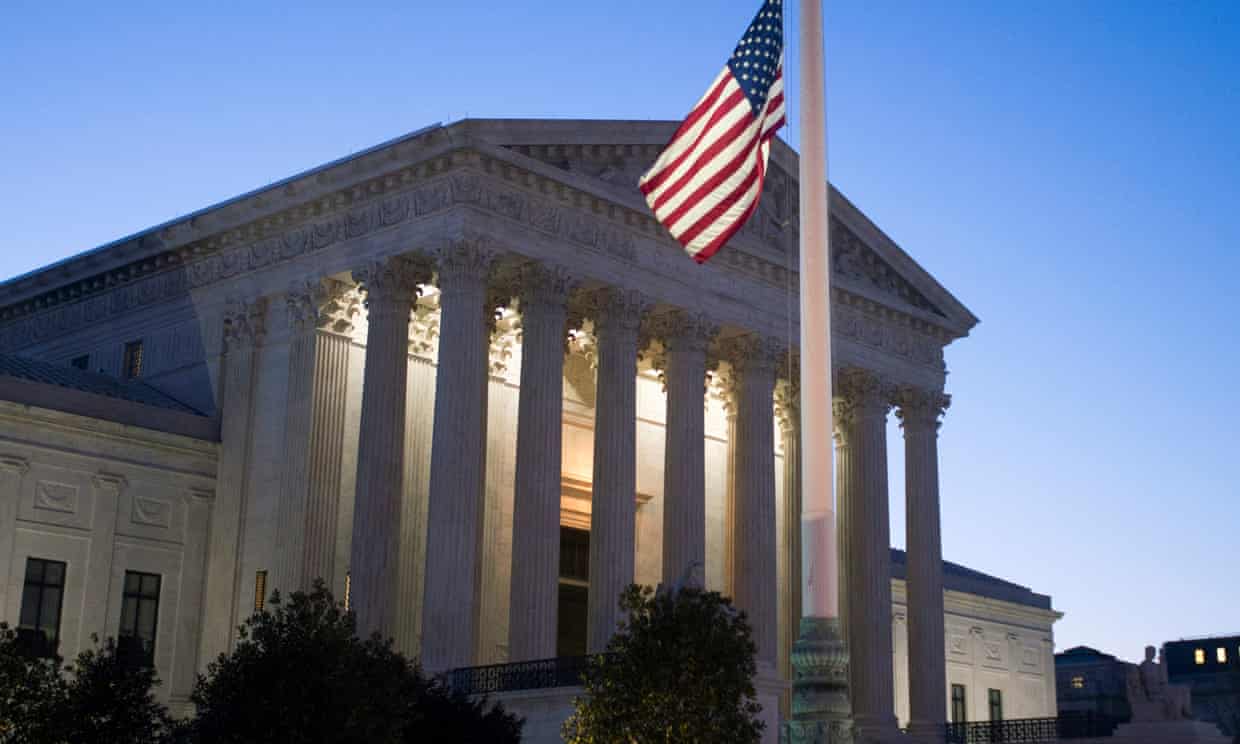by TOM McCARTHY
 ‘The term was a dramatically and stunningly successful one for the court’s conservative majority,’ write Steve Vladeck, a University of Texas law professor. PHOTO/Michael Reynolds/EPA
‘The term was a dramatically and stunningly successful one for the court’s conservative majority,’ write Steve Vladeck, a University of Texas law professor. PHOTO/Michael Reynolds/EPA
In the most recent term, centrist Anthony Kennedy sided with the court’s conservative bloc, outlining a sweeping victory for the side
A day after the US supreme court went home for the summer, the outlines of a sweeping conservative victory were becoming clear. “There’s no way to sugarcoat this,” wrote Steve Vladeck, a University of Texas law professor. “The term was a dramatically and stunningly successful one for the court’s conservative majority.”
Even more dispiriting for progressives, the retirement announcement by Justice Anthony Kennedy on Wednesday meant that the “stunningly” conservative term could represent the court’s future. While he has been known as a centrist, in the most recent term Kennedy sided with the court’s conservative bloc in every close, 5-4 decision, behaving more like the kind of justice Donald Trump is expected to nominate to replace him from a shortlist of hard-right candidates.
Here are the key conservative rulings from the term – and just one in which the court’s liberal bloc ended up in the majority, thanks to Chief Justice John Roberts joining them:
Travel ban
In a 5-4 ruling in Trump v Hawaii, the court upheld Trump’s ban on travel from several Muslim-majority countries. The ban targets travelers from Syria, Iran, Libya, Yemen and Somalia, and includes limited sanctions against North Korea and Venezuela. Trump hailed the ruling, calling it a “tremendous victory for the American people”. But the Council on American-Islamic Relations (Cair) said in a statement: “The Muslim ban’s bigotry should have been as clear to the supreme court as it is to the Muslims demonized by it.”
Labor unions
In a 5-4 decision in Janus v American Federation of State, County and Municipal Employees, the court ruled that public sector employees who do not wish to join a workers’ union cannot be compelled to pay union dues. The ruling came at the end of what Justice Elena Kagan said was a “six-year crusade” by conservatives to cripple public unions, which among other things are an important source of political support for Democrats. Trump tweeted in celebration: “Big loss for the coffers of the Democrats!”
Abortion
In a 5-4 decision in National Institute of Family and Life Advocates v Becerra, the court blocked a California law that had sought to ensure that women seeking help from religiously affiliated “crisis pregnancy centers” would be advised that abortion was a legal option. The court ruled that the centers were not required to provide information they found objectionable. Trump did not publicly comment on the decision.
Voting rights
In a 5-4 decision in Husted v A Philip Randolph Institute, the court upheld an Ohio law under which voters are purged from registration rolls according to rules that have been found to disproportionately affect communities of color. If voters do not return a postcard, which seeks to confirm their place of residence, and then they sit out two election cycles, Ohio purges them. “Just won big Supreme Court decision on Voting!” Trump tweeted. “Great News!”
Racial gerrymandering
In a 5-4 decision in Abbott v Perez, the court ruled that the state of Texas was free to use redistricting maps that a lower court said was drawn to disenfranchise Hispanic and African American voters. In a sharply worded dissent, Justice Sonia Sotomayor said the ruling “does great damage to” the principle of “equal participation in our political processes”.
Workplace arbitration
In a 5-4 ruling in Epic Systems Corp v Lewis, the court ruled that employers may require employees to waive their right to participate in a class action or class arbitration as a condition of hiring. The ruling means that employees who are not paid a legal wage or who are forced to work overtime could also be forced to enter arbitration with their employers individually instead of as a group.
Carpenter v United States
In a 5-4 ruling in Carpenter v United States, Roberts joined the court’s liberal bloc to rule that police needed a search warrant to access phone records, including the detailed caller location history that can be gleaned from cell tower data. The ruling was hailed as a landmark victory for privacy rights in the digital age.
The Guardian for more